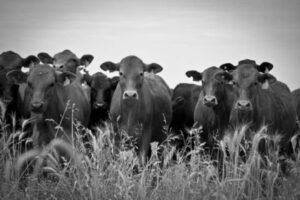New Bill Aims to Reduce the Misuse of Antibiotics in Livestock Production

Senator Dianne Feinstein (D-CA) has introduced a bill aimed at limiting the use of antibiotics in livestock feed. Along with cosponsors, Senators Susan Collins (R-ME), Jack Reed (D-RI), Maria Cantwell (D-WA), Kirsten Gillibrand (D-NY) and Barbara Boxer (D-CA), the bill, The Preventing Antibiotic Resistant Act of 2013, targets prolonged use of antibiotics intended to enhance growth would be restricted.
The bill states that use of antibiotics is acceptable in dosages for treating a specific disease or infection, “but does not include the continued use of such an anti-microbial in the animal after the disease or infection is resolved.”
Antibiotic resistance is becoming a serious issue as a result of antibiotic use in animal feed, which is done to offset the health risks from unsanitary conditions, but mainly, they’re used to speed the growth of animals. As a result, pathogens in meat, eggs and dairy products are becoming more resilient, and pose greater threats to human health. Likewise, bacterial infections including MRSA and gonorrhea are now virtually untreatable with common antibiotics. The World Health Organization has repeatedly warned against the overuse of antibiotics in livestock feed.
The use of antibiotics in livestock production has increased dramatically in the last four decades. The FDA reported that just 1.2 million pounds were used in 1960. More than 20 million pounds were used in 2011—nearly 80 percent of all antibiotic supplies in the U.S.
According to Take Part, meat lobbyists are working to defeat the legislation. Dr. Mike Apley, a vet who represents the National Cattlemen’s Beef Association justified antibiotic use as a necessary and well-regulated element of food production: “Unfortunately, there are a lot of misconceptions and outright misrepresentations about why and how antibiotics are used in the cattle industry,” Dr. Apley said. “The truth is, cattle producers and veterinarians utilize many tools including vaccines, herd health management, genetics and animal nutrition to continue producing the world’s safest beef.”
Keep in touch with Jill on Twitter @jillettinger
Image: Alex E Proimos

